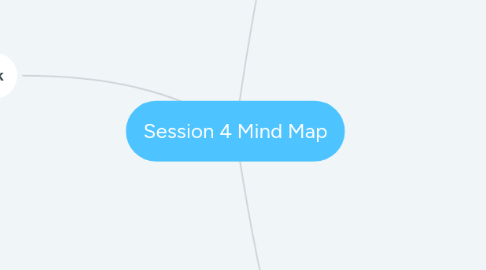
1. Dr. McHaney CRQ Feedback
1.1. Do CRQ First?
1.2. Go to the Question. Read the Question
1.2.1. Name the problem before we fix the problem.
1.3. Justify the Answer w/ Textual Evidence
1.3.1. Evidence Informed
1.3.2. Values Driven, Data Informed.
1.4. Levels of Coaching
1.4.1. Reflective Coaching
1.4.1.1. Teacher owns the process
1.4.2. Informative Coaching
1.4.2.1. Throw in some suggestions
1.4.2.2. Let the teacher take ownership
1.4.3. Directive Coaching
1.4.3.1. Do this.
1.4.3.2. Lowest level.
1.5. How Not Why
1.5.1. Prepare Coaching Questions Beforehand
1.5.2. Positive Presupposition Question
1.5.3. Bring the teacher back to the standard.
2. Madi Hunter: Lesson Plan Cycle
2.1. Beginning
2.1.1. Anticipatory Set
2.1.1.1. Objective
2.1.1.2. Prior Knowledge/Review
2.1.1.2.1. Formative Assessment
2.1.1.2.2. What do you remember?
2.1.1.2.3. What do you own?
2.1.1.2.4. What do you know?
2.1.1.3. Hook
2.1.1.4. Relevance
2.1.1.4.1. Partnering w/ students to develop Critical Thinking Q's
2.1.1.4.2. Establish the WHY together.
2.1.1.5. Social Emotional Feedback
2.2. Middle
2.2.1. Direct Teach
2.2.1.1. Content Knowledge w/ Questions
2.2.1.2. Objective Steps
2.2.1.3. I-Do
2.2.2. Guided Practice
2.2.2.1. Groups
2.2.2.1.1. Critical Thinking
2.2.2.2. We-Do
2.2.2.3. BRAIN BREAK!
2.2.3. Independent Practice
2.2.3.1. Voice & Choice
2.2.3.2. Students as Designers
2.2.3.2.1. Critical Thinking Questions
2.2.3.3. You-Do
2.3. End
2.3.1. Closure
2.3.1.1. Reminder of Objective
2.3.1.2. Celebration of Mastery
2.3.1.2.1. Presentation of IP
2.3.1.3. Reflection
2.3.1.4. Summative Assessment
3. Innovate Inside The Box
3.1. Chapter 1
3.1.1. Small things matter
3.1.1.1. Little personal touches set the tone for the classroom.
3.2. Chapter 2
3.2.1. Learner Driven. Evidence Informed.
3.3. Chapter 3
3.3.1. Student engagement is the goal via empowered learning experiences.
3.3.1.1. What will I learn?
3.3.1.2. What will I solve?
3.3.1.3. What will I create?
3.4. Chapter 4
3.4.1. Master Learner. Master Educator.
3.4.1.1. Growth is essential when the target is always moving.
3.5. Chapter 5-6
3.5.1. Empathy.
3.5.1.1. How can we partner with students to create opportunities to develop empathy?
3.5.1.2. Creates a culture of meaning and relevance.
3.5.2. Problem Finders/Solvers
3.5.2.1. Creating opportunities for the students to lead in the classroom.
3.5.2.2. Requires a deep level of trust.
3.6. Chapter 7-8
3.6.1. Risk-Takers
3.6.1.1. Developing a culture of risk taking
3.6.1.2. Leading by modeling.
3.6.1.3. Creating a culture where failure is encouraged.
3.6.2. Networked.
3.6.2.1. Family Hook ups
3.6.2.2. Creating a culture of networking.
3.7. Chapter 9-10
3.7.1. Observant.
3.7.1.1. Taking time to watch your students to know them.
3.7.2. Creators
3.7.2.1. Students should be involved in the learning process by developing things that matter to them.
3.7.2.2. Providing great models of creativity.
3.8. Chapter 11-12
3.8.1. Resilient.
3.8.1.1. Pathway forward is built through failure.
3.8.2. Reflection.
3.8.2.1. Giving our kids time to take a moment to marinate.
3.8.2.2. Create space & time for learning to be a source of joy.
3.9. Chapter 13-14
3.9.1. Lead from where you are.
3.9.2. You are the core.
